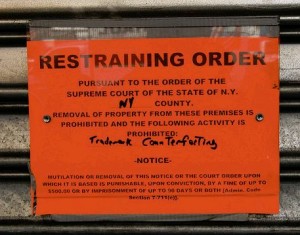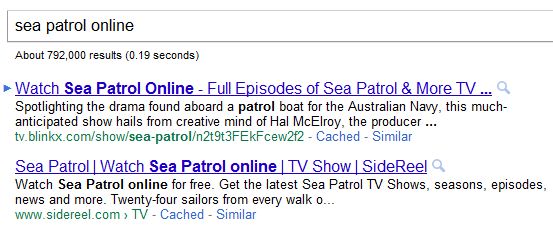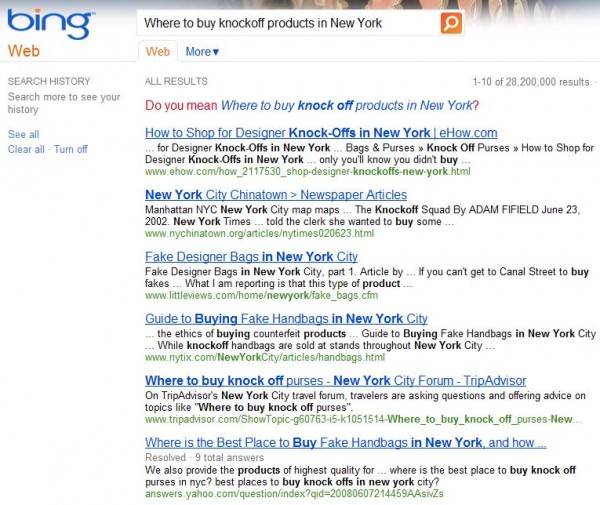If Google Was New York City & Online Piracy Was Knock-Off Handbags…
Imagine my shock when I used Bing to search for “Where to buy knockoff products in New York” and found a treasure trove of information on the web leading me to an apparently little-known area of New York City where such products are available around Canal Street: Imagine my further shock to discover that major […]
Imagine my shock when I used Bing to search for “Where to buy knockoff products in New York” and found a treasure trove of information on the web leading me to an apparently little-known area of New York City where such products are available around Canal Street:
Imagine my further shock to discover that major companies such as Demand Media, Yahoo, TripAdvisor and Yelp were all providing information that Bing listed on how to locate this area.
Imagine my even further shock to discover that in today’s US congressional hearing about fending off such intellectual property theft, no one apparently asked what Bing was doing to stop this. No one seems to have asked why these major companies are hosting this information and how to stop them, either.
Piracy Galore In New York City!
Nor, does it appear, that US government, New York state or New York City authorities have acted to close this area down. Why, in a few simple searches on Twitter, I can find people talking about getting fake goods on Canal within the past few days.
Is the area unknown to the authorities? No. According to a New York Times article from 2002 that I found in my Bing search above — actually, a copy of the article apparently reprinted without permission — authorities have been fighting a war against counterfeit sales in this notorious area for literally decades.
Another article, from 2004, said that New York City accounts for 8% of the total counterfeit sales in the United States. Another said the city has fought back with things like ads linking counterfeit products to child labor and statements that counterfeits support terrorism.
Why Doesn’t The Government Act?

I mean, if you can’t break piracy there, you can’t break it anywhere, to put some new lyrics to Frank Sinatra’s classic.
Perhaps people in the US government are spending too much time gasping that in a search for “free mp3 taylor swift,” Google returned results that may or may not actually allow for downloading songs by the singer for free.
Bringing It Back To Google
Both Ars Technica and Techdirt have coverage of today’s hearing (and Techmeme provides even more), where Google comes out sounding complacent about fighting piracy, other search engines appear not to exist, and legislators seem to think there’s some magic wand that Google can wave to make online piracy just disappear.
Make no mistake. I’d like to see Google wipe out those who infringe copyright and intellectual property myself. Our own content gets stolen online, and as I’ve covered in the past, it can be just too much hassle going through the complicated procedures to get it pulled out of Google, much less off the web itself.
And I totally agree, it seems wrong that Google can reward sites that aid in infringement. For example, the second season of the Australian TV show “Sea Patrol” isn’t online anywhere in the US. I know this, because I know that Clicker — which consistently lists only legitimate sources offering TV content online– says that only season one is available, through Hulu.

Of course, if Google should block them, no doubt the US Congress will have another hearing, this time about whether Google is acting as a monopoly in blocking these vertical search engines.
Boulevards Vs. Back Streets
It’s also easy to make the problem seem worse than it is. Just because you can pick any search and show there are sites hosting, or purporting to host, illegal content, that doesn’t mean the majority of people are actually getting to content this way.
It’s similar to the real world. Even though it’s easy to find a knock-off product in New York, relatively few people go out of their way into the back streets to do it. Fewer of these people were likely to have purchased the real product.
Again, this isn’t an excuse for what goes on. It’s simply a reality check. Pressuring Google to help fight online piracy happening on the main boulevards of the internet is one thing. Pressuring Google to fight online piracy that goes on in the back streets of the internet is another.
No Easy Answers
The issues involved are tricky. There is no magic wand that can be waved. We could use better laws, not to mention faster ways for those who are honestly being infringed to get pirated material out of Google, not to mention off the web.
But the effort should be done in a way that doesn’t just seem to be catering to Hollywood, simply because it has the loudest voice. It shouldn’t be done in a way that causes innocent sites to get caught up, especially when major companies have shown themselves repeatedly not concerned about trampling over legitimate fair use that happens.
And it shouldn’t be done as if Google is solely responsible for online piracy and somehow able to make it stop.
Postscript: Looking at a CNET story, I see Debbie Wasserman-Schultz (D-Fla) has raised the issue in th past about how searching for “knock-off” in Google provides links to illegal goods. In the hearing, she chastised Google for not fixing this:
You’re Google. You helped overthrow the head of an entire country in a weekend.
Right back at you, Wasserman-Schultz. You’re the United States government, and you’ve helped overthrow countries. And yet, you can’t stop real-life piracy on the streets of New York?
Restraining order image from Maveric2003, used under Creative Commons license.
Contributing authors are invited to create content for Search Engine Land and are chosen for their expertise and contribution to the search community. Our contributors work under the oversight of the editorial staff and contributions are checked for quality and relevance to our readers. The opinions they express are their own.
Related stories
New on Search Engine Land
